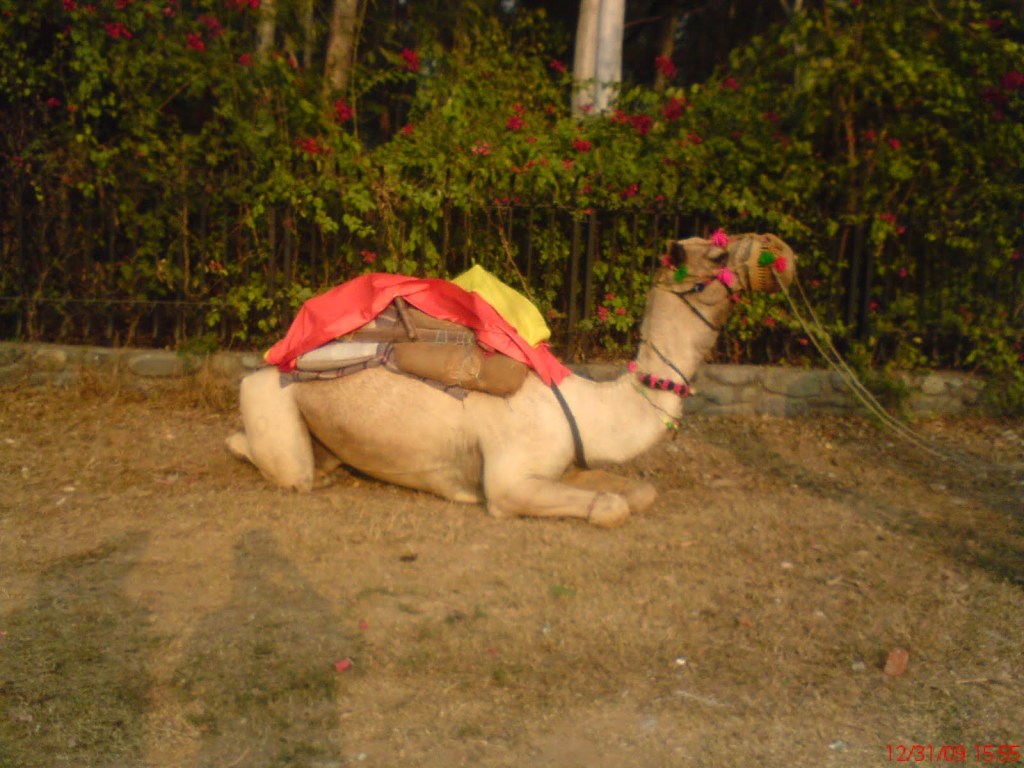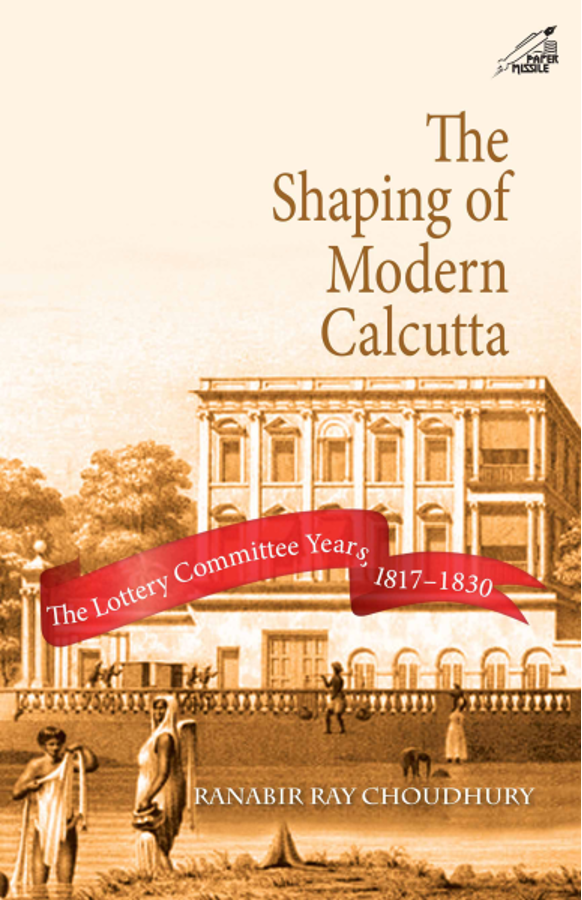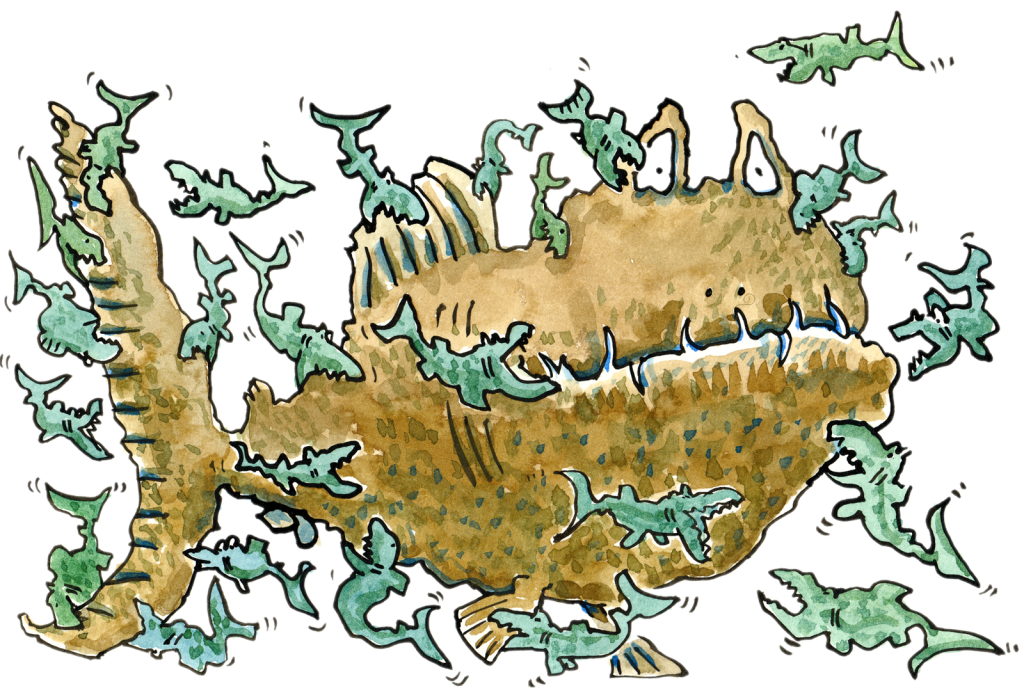By Devraj Singh Kalsi

The butcher had written many poems without any dream of compiling those for a book. His shop assistant, a college-student, did a part-time job to fund his education. Being a reluctant bachelor, the butcher nurtured his romantic side through poetry and managed to convey a fairly youthful visage of his personality rarely found in men following his métier.
Mohsin independently handled the job of dealing with pesky customers haggling over price and quantity without displeasing them while Yunus sat in a corner, propped against a cushion, lost in the universe of verses, oblivious of what transpired around him unless he was called out to tender the change to any customer. Whether Yunus managed to create something valuable when Mohsin did the chopping and grinding mincemeat hovered in the realm of doubt. His trance-like state seemed to suggest he was engrossed in a creative exercise that ordinary mortals would never associate with a meat-seller.
“Sahib, your poems stab the heart. Honestly saying so – what will I get by flattering you…” Mohsin repeated this sentence like mantra at least twice every day. Though Yunus did not accept it with a smile, Mohsin knew his quick rise as an employee was on account of the litany of praises sung in favour of the blossoming poet well past his prime. With years of experience and loyalty piling up in favour of Mohsin, he was given further responsibilities to shoulder. Managing cash and transactions empowered him and delivered greater freedom to Yunus to pursue his art with singular focus and minimum distractions.
Whenever Yunus was mired in doubt regarding the finesse of what he had written, he sought feedback from Mohsin. Before he could complete the couplet, Mohsin broke into applause that made Yunus suspect a ring of fake appreciation.
“Deewar ki kya haisiyat, dooriyaan toh pehle se thi [1],” Yunus began with promise.
As the din of wah-wah[2]rent the air, Yunus looked disgruntled with the premature reaction of Mohsin, and repeated his two cents on suitable behaviour of admirers, “A sincere listener should have the patience to hear the whole thing first.”
Being an educated youth, Mohsin qualified as the ideal audience who measured the impact of words flowing from Yunus’s pen. It was tested on young listeners to find emotional connection. Unfortunately, the growing disenchantment with Mohsin disheartened Yunus who sometimes felt he was not getting what he was expecting from Mohsin even though he had been generous to give him more than what he deserved. On the other hand, Mohsin hesitated to be candid and did not speak his mind as he was scared of earning his boss’s displeasure. This part-time job was crucial for his education and he had do idea whether he would be kept employed if he did not eulogise the poetic renditions of his employer.
Sensing a losing battle, Mohsin pumped up his self-confidence with a meaty response, “You felt offended for no reason, Sahib. I wanted you to have full faith in your words. Too much modesty is never good for talent,” Mohsin rallied forth as a rabid admirer who stuck to his assertion that he never doled out fake acclaim.
Mohsin sounded firm and decisive. Yunus specified non-existence of spite in what he explained. As a conciliatory move to validate the observations made by Mohsin, Yunus said wholeheartedly, without rising from his seat, “Okay then, let us hold a small gathering at my residence – where I read out some recent works. You can bring in some of your friends to comment on my work.”
Mohsin accepted the invitation with an enthusiastic, ingratiating smile, confident that his friends would happily tag along for an evening of poetic ambrosia.
Leading a group of friends with literary taste, Mohsin arrived before time to make the necessary arrangements. When Yunus opened the hall door, he was delighted to see a beautiful college girl in the group. Perhaps they were expecting a younger poet without the protruding belly and shades of pepper in the beard. Yunus ordered Mohsin to arrange snacks and serve drinks to the guests. Mohsin rose from his seat and tapped the shoulder of the girl next to him, without hesitation, asking her to assist him in the kitchen chore.
Despite knowing that his friends already knew what he did, Yunus explained he was a butcher by profession and dabbled in poetry for solace. Arriving with a tray full of munchies, Mohsin did the rest of the introduction in front of Yunus, raising a thundering applause from his friends who valued the existence of contrast in his personality.
The befitting introductions were soon over. Yunus also praised Mohsin in front of his friends. Then he took a seat on the diwan covered with a satin sheet and began to select verses from his diary. Mohsin urged him to recite love-related couplets on separation and heartbreak. Just once Yunus had briefly disclosed how he lost his beloved partner to another man who showed promise of a better future than what a butcher could provide. The positive outcome of this setback was that he did not turn into an alcoholic but channelised his frustrations into poetic outbursts.
After listening to some of his couplets, the young group celebrated in collective euphoria, as if they had discovered a remarkable poet in the most unlikely place. When a friend of Mohsin egged him to quit the profession and embrace poetry full-time, Mohsin shot back in defence of Yunus: “A job is a job after all. Nothing is less dignified. He is not a terrorist killing innocent people in the name of faith. I also work in the same place, and I am your friend. How does it matter or change our relationship?”
“What you are saying is true, but don’t you think if he has to read out in a mushaira or a large, diverse gathering of poets from all over India, he will find it difficult to explain he is a butcher? No introduction would ensure better reception of his work as the snob poets, who associate creativity as the preserve of the privileged few, would baulk at such a background,” his friend added, looking straight into the eyes of Yunus who mustered the courage to ask for her name.
“You are Madam…,” Yunus managed these words hoping quick completion of the sentence from her.
“Ji[3], Saira, final year literature student.”
Choosing to defend Saira, Yunus confronted Mohsin, “I think Saira ji is right. She has a valid point regard the background factor. I have been through this experience for years and I fully agree with her. I should avoid any introduction that shocks them.”
Mohsin had silenced most of his friends before the humble submission of Yunus came forth. The brief exchange enabled emotional investment in Saira and Yunus. When he resumed his recitation, his eyes focused on Saira with whom he had established some familiarity. Holding forth like a seasoned poet who had been through many renditions, Yunus read out his works on love and angst, on conflict and subtle violence in relationships.
When Mohsin disclosed that Yunus would like to bring out a collection of poems some day, though he had never expressed the desire in all these years, he was generalising the trend and did not expect Saira would be the first to react. Her response surpassed what others in the group came up with later. This put pressure on Yunus who felt he had to get the stuff published by leading publishers or face ridicule for grand declarations that never saw the light of the day. A believer that art should spread its own fragrance was now exploring ways to push his art through, to reach out to audiences. This made him somewhat uncomfortable with himself – a self-loving poet craving for recognition.
Mohsin was entrusted the job of sifting the best poems and he outsourced the task to Saira who had a very good ear. When Yunus handed over the diaries to Mohsin, he expected Saira to come forward and receive it as a custodian of his creative wealth.
Saira suggested the name of some leading publications. Before Yunus could frame a reply, Mohsin said, “Yunus bhai[4] is ready to invest in getting his poems published. These have potential and must reach out to young readers. What do you say, Saira?”
Saira looked blank for a while and then gathered herself to utter a few words of encouragement. “Yes, it should not be allowed to rot because of the lack of publishers who are money driven these days.”
“Once he reaches out with his work globally – nowadays it is easy to be heard, seen and read via digital platform. We can make an online push on various platforms and see him through,” Mohsin chipped in with his strategy.
“You are suggesting pay and publish. I would never do that,” Yunus said firmly in front of the group.
Friends disappeared after hearing the stern refusal. Mohsin and Saira were disappointed that he would not cave in with ease. A good amount of persuasion would do the trick. After a month of peace, Yunus delivered a surprise by agreeing to the proposal and asked Mohsin to rope in Saira to manage his launch.
Mohsin quickly agreed to whatever Yunus had said – before he underwent another change of heart that would disappoint. There was a growing circle of young, local admirers who heard from Mohsin that Yunus was an entertaining poet.
Mohsin got back with another offer. Saira knew a publisher who launched talented poets and did everything for them, for a nominal fee of one lakh rupees. Saira would work in tandem with the team to ensure a successful break for Yunus. Without asking for details, Yunus agreed to shell out the full amount within a week. He asked Mohsin to withdraw cash from his account and pay the publisher and get the book released before his next birthday.
“Actually, Saira’s friend’s father runs the printing press, and I would personally request for an upfront discount,” Mohsin proposed.
The mere mention of Saira gave Yunus assurance that he was in safe hands.
“Make sure everything happens on time, without delays,” Yunus stressed, resisting the urge to suggest him to take Saira’s help in the execution of the project.
For a quirky launch, the approved idea was to launch it in the meat shop as it would gather attention and stir curiosity. Meat and books – unusual companions though they have a lot to do with flesh.
Some 20-odd people turned up for the launch, mostly Mohsin’s friends. The space could accommodate around fifty people like any small bookshop. The smell of meat was hanging in the air even though rose perfume spray was used a lot. The gritty reality of the setting was something they could not let go of.
The poet was dressed in traditional casuals. Mohsin updated him that one hundred copies had been ordered online, and some free copies were also given to friends to write positive reviews. The entire print run of 500 copies would get sold out within a month was what Saira’s friend had promised.
Yunus was hoping the launch would be covered by leading newspapers, but he was not aware he was expected to pay for that as well. On the dais to launch the book were Saira and Yunus. The poet held a small portion of the book with his chubby fingertips while Saira clutched the rest of it firmly.
Mohsin clicked pictures of the poet alone, and left Saira, looking gorgeous in sequined turquoise, out of the frame except the solo snap. In that, she had uncovered the wrapped book and showed it to the cheering crowd that included some old friends of Yunus, who were expecting nice announcements to follow, some declaration that the two would marry. It was disappointing when nothing of that sort happened on stage, and they had to leave with a packet of sweets for the launch along with a complimentary copy of the book.
Yunus displayed some copies of his poetry book inside his meat shop, on a tall, wooden rack that was visible to meat buyers. Within a month of answering queries regarding the book, Mohsin stopped reporting for work. For some days, Yunus waited for him to come back. But when he did not turn up or receive his phone calls, he suspected something fishy.
Now Yunus had to serve customers, pack meat and do everything that Mohsin used to do. Poetry took a backseat as the whole day he was busy with this job. He understood how valuable the guy was to him after he left. Late one evening, a message popped in from Mohsin, saying he was quitting the job on health grounds, and he should look for a replacement. It was a confirmation that he was never going to turn up.
Yunus messaged him with the promise of a salary hike, but the bait did not work. He hoped to get a chance to allure him with some perks. Since poor health was not a convincing reason to leave the job, Yunus thought he had secured better opportunities. But this abrupt end to their five-year relationship was not the proper way to wrap it up. He did deserve some better explanation of this sudden disappearance – given the fact that he had been quite good to Mohsin all these years, treating him like a brother instead of an employee.
Hoping he would build a loyal base of readers, Yunus distributed the copies he had in stock, absolutely free, to those who showed interest in reading his work or those who bought a kilo of mutton. His strategy did not achieve the goal as nobody came back to give reviews. Some of them stopped patronising his meat shop altogether.
Yunus pondered why he lost loyal meat buyers when he tried to convert them into lovers of poetry. Perhaps they felt guilty that the state of art had been reduced to such a pitiable state or they felt bad that a poet of his worth had to sell meat to survive. He had inflated the hope that his tender poetry would win praise like his tender meat. The only good outcome was that the stock of books came to an end.
The departure of Mohsin intrigued him at times. He wondered what had happened was beyond the realm of his imagination. It was perhaps the handiwork of Saira or maybe Mohsin sensed his growing attraction for Saira had to be curtailed as he could soon try to get closer to her. Negative thoughts exploded within, and he wished to unravel the truth although there was no way for him to trace the fellow or seek answers from his band of friends.
Six months passed. One or two customers who had stopped coming now reappeared with praise for his work, urging him to read more classics and write more about society and relationships. He received their feedback with humility and disclosed his career as a poet was short-lived as the book did not get traction or positive response from critics. The middle-aged gentleman was direct in advice and urged him to write about the plight of Muslims. Yunus kept quiet as he was not a radical fellow. Fearing misinterpretation of his silence, he answered in a roundabout way without mentioning the names of the countries, “We are better off as a community here. I thank my forefathers for not going there.”
The customer was persistent. “Many did not go because they didn’t want to, but many were not allowed in there as they could not feed them all. Also, there was no meaning in creating a poor homeland.”
This was a critical observation. Yunus preferred to conclude the conversation without a rejoinder. The meat was packed and handed over. While making the payment, he repeated the advice of writing politically charged poems, to awaken the masses. The incendiary content could foment trouble between the communities. He was cautious of his words inflaming passions on either side. As a sensitive poet who operated in the orbit of love and heartbreak, this dangerous territory could prove counter productive.
A few weeks later, when a mob lynching episode was reported in the media, he felt like pouring forth his emotional turmoil on humanitarian grounds. He imagined he was a potential candidate to be delivered similar treatment by fanatics. Out of sensitivity for the lynched person, he wrote a few lines but did not muster the strength to put it out in the public domain. The growing trend of persecution made him an advocate of peace on both sides.
Yunus felt charged by the power of his own voice and somehow managed to overpower the urge he felt to vent it out and reach out to the masses. He was drawn to the idea of making a transition to the political fray through poetry of rebellion, making it a point to give an outlet to his hurt sentiments.
The desire to showcase his new poems to Mohsin and Saira bothered him. He imagined they would summarily disapprove of the switch from romance to politics. The mass media overdid it so there were not going to be takers for his poetic take. Mohsin was not there to speak his mind and his absence meant a deep personal loss. Unable to recover from it, Yunus was ready to mount a full-fledged attack through his feisty, no-holds barred pen.
His tendency to be sensitive was challenged as he suffered twin blows. Even though Saira had not been a part of his life, he felt her absence deeply, no less than how much he missed Mohsin. The bitterness within was in some way inextricably linked to their cold disposition. When the sight of bloodshed fails to rouse people, poetry cannot be expected to perform miracles. Youth have a deep, intense connection with romance in literature. As they keep falling in love, they need new voices and expressions to relate to and communicate their feelings instead of recycling the treasures of the past with waning impact.
One afternoon, Yunus received an invitation to attend a mushaira in front of a strong crowd of five thousand people. The nominal fee of Rs 1000 did not matter as he had spent many times more in the past without any gains. The temptation of a sizeable crowd was high, and it was a formal invite. The names of the organisers were listed but he did not know any of them personally, so he believed it was the result of his hard work put into his previous collection that had finally got noticed and he was being given the chance to read in front of a large gathering based on his literary worth alone.
Yunus loved this idea more than anything else and he started rehearsing for it. He bought a microphone to practice in front of it – to hold it and know how much distance was ideal so he wouldn’t fumble during the reading session. He got a Sherwani[5] with special zari[6] stitched from the tailor for the event as he wanted to flaunt a royal look where nobody would identify him as a butcher. He did riyaaz[7] to make sure he did not forget the lines and shortlisted some of his best works. From love to separation to intimacy to politics to culture, the potpourri was nothing less than a heady cocktail.
On the day of performance, Yunus reached the stage and was surprised to find Mohsin and Saira seated in the front row. As he established eye contact with Saira first, he smiled, but she looked the other way, leaning heavily on Mohsin’s shoulder. As he read out a new one on betrayal, Mohsin was the first to clap and soon there was a climax of resounding claps, including Saira putting her hennaed hands together to applaud Yunus the poet.
For a while Yunus was lost in the maze of questions related to their disappearance but he composed himself thinking this was the best opportunity to perform well before the large crowd who could breathe life into his lifeless career that was close to the last stage. Having been a failed lover all his life, he resorted to his pet theme with the fond hope of impressing the crowd. Despite the mehndi in his hair and beard, he managed to set young hearts ablaze with his bass voice and choice of words.
As the cheering rose and reached a crescendo, Yunus was encouraged to recite his political poems. After fifteen minutes of holding the audience spellbound, there was a sudden outbreak of violence inside the hall, with a stampede-like situation developing fast. People of another community had barged in with lathis to stop the mushaira that was streamed live on social media channels.
Mohsin rushed to the stage to save Yunus from the angry crowd. The mixing of unruly elements to create mischief had vitiated the atmosphere. Yunus embraced Mohsin and had a volley of questions that Mohsin promised to answer later after managing a safe exit from the troubled spot. Saira also escorted him out from the backstage, through the VIP exit gate and made Yunus sit in their tinted car.
“Why did you read out political poems here? It earned you the wrath of the other community. Yunus, you have gambled everything for fifteen minutes of fame. See how thirsty they are to butcher you now. The mob, I mean. Your session has gone viral, and they are baying for your blood. Lakhs have already seen it and it has fomented trouble for the administration. Why do poets need to be politically vocal? Stay restricted to the tender subjects,” Mohsin went hammer and tongs like never before.
“Why should I be afraid of the mob? I am a poet applauded by listeners here. Invited to read out,” Yunus justified his right to express his political views with full freedom.
You mean thousands of admirers? Let me correct you – thousands of enemies you have created. And yes, let me clear your confusion. Saira insisted we should invite you through a friend. Her father organised the mushaira this time after returning from abroad. Anyway, we are dropping you by car to the railway station and from there you board a train. We are not responsible for your safety during the journey and thereafter,” Mohsin said with final authority.
“Why are you doing so much for me? Let me die here – throw me in front of the crowds baying for my blood. Let them butcher me, lynch me right here.”
“You helped me when I was in need. When I was courting Saira and waiting for her yes to my offer of a relationship. Then she agreed and we got married. She belongs to a rich family and wanted me to look after her family business. So I had to leave your job. There is nothing bad in progress and selfishness. But Saira did not want you to know this –she felt you were beginning to have a soft corner for her, and this news would break your heart.”
“Lucky fellow indeed – succeeded in love in the first attempt and made it big, unlike me who always failed in love,” Yunus sulked in the back seat of the car while the couple in the front glanced at his expression in the mirror.
“You have spoken a lot, just tell me one more thing. Why did you want me to be a poet? I was happy as a butcher, writing for myself, why you wanted to bring my works to the world? Did you really think my voice matters?” Yunus asked without much hope of a satisfactory reply in the presence of Saira.
Before he could say a word, Saira answered on his behalf in a firm voice. “NO – let me break this illusion. What you write is entertainment and not poetry in the league of great poets. You do not have anything immortal to offer. But it is a good hobby for a person who does a ruthless, brutal job, to nurture the sensitive side. That is why I liked your efforts and praised it. That’s it. For the youth, anything with a touch of romance sparks interest. The same applies to poetry.”
It was heartbreaking for Yunus to hear these words from a lady who had launched his only book, the lady he liked to treat as his muse. The clapping audience, he was told, had been tutored to do so, since most of them were employees of the company owned by Saira’s family.
At the railway station they looked around to see whether there was any person following them. Yunus was safe from the irate mob. He boarded the train to his hometown and was seen off by the couple from the over bridge. Yunus waved through the window as the train inched out of the platform, but they had already left. He felt he was leading a meaningless life, and he should cut it short by jumping off the moving train.
When he reached his destination early morning, he took an auto-rickshaw to his meat shop. He was greeted by the sight of ruin. There was no tender meat shop as everything was gutted. The house behind his shop was also torched. It was punishment meted out for being a political poet who needed to be silenced in this fashion.
An old neighbour walked up to him, to console him and rested his frail hand on the shoulder. He played on his smartphone the poetry Yunus had read out yesterday and waited for its completion before praising him: “You said it very well, Yunus. Speaking the truth makes one pay a heavy price. May Allah grant you the strength to rebuild your life.”
Yunus controlled his tears and moved inside the shop where half-burnt pages of his poems lay scattered on the dismantled Yunus Meat Shop signboard. Observing all this wreckage worsened his grief as he could not avoid thinking of Mohsin and Saira and their savage words. How they had teamed up and flourished while he touched the lowest ebb, chasing a dream that was a mirage for a man of modest talent. His copious tears were apparently flowing to regret the loss of property, but nobody here would ever know the other big loss he had suffered that left him heartbroken.

[1] What can walls do, the distances were there earlier itself
[2] Praise
[3] A respectful way of addressing an elder
[4] Brother, a friendly address
[5] Long coat
[6] Gold or silver lace
[7] Practice
.
Devraj Singh Kalsi works as a senior copywriter in Kolkata. His short stories and essays have been published in Deccan Herald, Tehelka, Kitaab, Earthen Lamp Journal, Assam Tribune, and The Statesman. Pal Motors is his first novel.
PLEASE NOTE: ARTICLES CAN ONLY BE REPRODUCED IN OTHER SITES WITH DUE ACKNOWLEDGEMENT TO BORDERLESS JOURNAL
Click here to access the Borderless anthology, Monalisa No Longer Smiles
Click here to access Monalisa No Longer Smiles on Kindle Amazon International













